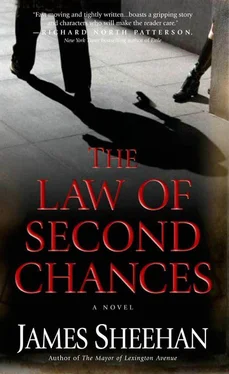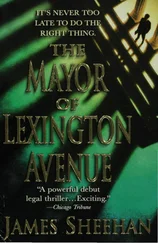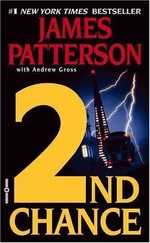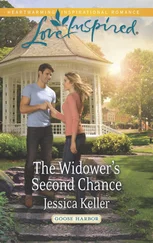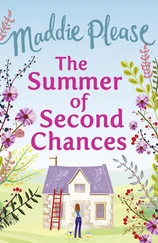James Sheehan - The Law of Second Chances
Здесь есть возможность читать онлайн «James Sheehan - The Law of Second Chances» весь текст электронной книги совершенно бесплатно (целиком полную версию без сокращений). В некоторых случаях можно слушать аудио, скачать через торрент в формате fb2 и присутствует краткое содержание. Год выпуска: 2013, ISBN: 2013, Издательство: James Sheehan, Жанр: Триллер, на английском языке. Описание произведения, (предисловие) а так же отзывы посетителей доступны на портале библиотеки ЛибКат.
- Название:The Law of Second Chances
- Автор:
- Издательство:James Sheehan
- Жанр:
- Год:2013
- ISBN:9781630011659
- Рейтинг книги:3 / 5. Голосов: 1
-
Избранное:Добавить в избранное
- Отзывы:
-
Ваша оценка:
- 60
- 1
- 2
- 3
- 4
- 5
The Law of Second Chances: краткое содержание, описание и аннотация
Предлагаем к чтению аннотацию, описание, краткое содержание или предисловие (зависит от того, что написал сам автор книги «The Law of Second Chances»). Если вы не нашли необходимую информацию о книге — напишите в комментариях, мы постараемся отыскать её.
The Law of Second Chances — читать онлайн бесплатно полную книгу (весь текст) целиком
Ниже представлен текст книги, разбитый по страницам. Система сохранения места последней прочитанной страницы, позволяет с удобством читать онлайн бесплатно книгу «The Law of Second Chances», без необходимости каждый раз заново искать на чём Вы остановились. Поставьте закладку, и сможете в любой момент перейти на страницу, на которой закончили чтение.
Интервал:
Закладка:
“Anything else?”
“I knew he was very wealthy.”
Jack could have raised an objection on the grounds that Carl’s wealth wasn’t directly relevant to the murder charge before the court, but Spencer was going to get that evidence in one way or another. Hell, the jury probably already knew that part. Objecting would only make Jack look like he was trying to keep something from them. He let it go.
On a related issue, though, Jack was ready to go to the mat. While the fact that Carl was wealthy was sufficient to establish robbery as a motive, it was not in itself evidence that the separate crime of robbery had occurred. The fight over that was about to start.
“Ms. Vincent,” Spencer continued, “you mentioned that Carl brought you ten thousand dollars a month. How did he bring it?”
“In cash-one-hundred-dollar bills bound together. He kept it in his left inside pocket.”
“And when did he usually bring this money?”
Jack was on his feet immediately.
“Objection, your honor. May we approach?”
“State the basis for your objection, Counsel.”
“The question is irrelevant, speculative, and prejudicial.”
“You may approach.”
Both Jack and Spencer walked over to the judge’s dais on the side opposite the jury for a sidebar discussion. The court reporter went with them so she could take down everything that was said.
“I’m not sure I understand your objection, Counsel, so clarify it for me,” the judge told Jack.
“Mr. Taylor asked when the deceased usually brought the money, your honor. This is not a contracts case. What the deceased customarily did is not an issue. It speculates as to whether he had the money with him that night. In that respect it is prejudicial because the jury could assume without any actual evidence that Mr. Robertson brought the money that night. I believe Mr. Taylor could ask the witness if she knew whether the deceased had the ten thousand dollars on him that night. Then I assume the prosecution could establish through other testimony that it was missing after the murder. Nothing else is relevant, your honor.”
“I’m not so sure, Counselor. I think it is relevant for the jury to hear that Mr. Robertson was wealthy and that he normally brought ten thousand dollars a month.”
“Relevant to what, Judge? Doesn’t he have to show my client knew about the money before it becomes relevant?”
The judge looked at Spencer Taylor. “Do you have anything to add, Mr. Taylor?”
“Yes, your honor. Mr. Tobin’s argument is ridiculous. That’s like saying the prosecution has to show in every case that the defendant knew beforehand how much money was in the victim’s pocket in order to prove a robbery occurred.” It was a good argument, and it made sense to the judge.
“I agree, Mr. Taylor. I think the question is admissible. However, sometime during your case you’re going to have to establish that something of value in excess of five hundred dollars was actually stolen from the deceased in order to establish that a felony occurred.”
It was exactly the ruling that Jack wanted at this stage of the proceedings. “You may answer the question,” the judge told Angie.
“I’m sorry, could you repeat it?” Angie asked Spencer.
“Certainly. When did the deceased usually bring this ten thousand dollars?”
“The first Tuesday of the month.”
Spencer Taylor had gotten everything he needed from Angie. He had learned through trial and error over the years only to ask the questions that needed to be asked.
“No further questions.”
The judge looked at Jack. “Cross-examination?”
“Yes, your honor, thank you.”
Angie was stunning, and she had been direct and honest in her testimony. The jury obviously liked her, and Jack wanted to be very careful not to appear to be the bad guy with her.
“Ms. Vincent, you testified that the deceased usually brought the ten thousand dollars on the first Tuesday of the month, correct?”
“Yes.”
“But he didn’t always bring it on the first Tuesday, is that accurate?” Jack wasn’t fishing. He already knew the answer from the police reports in Benny’s file.
“Yes.”
“So some months he brought it on the second Tuesday or the third Tuesday or even the fourth Tuesday, is that accurate?”
“I don’t believe I ever had to wait until the fourth week.”
“So you were always paid by the end of the third week?”
“Yes.”
“And within those first three weeks sometimes you were paid on the Tuesday and sometimes on the Thursday, is that correct?”
“Yes.”
“And is it accurate that you do not know for a fact whether the deceased had your money, the ten thousand dollars, on him the night he was murdered?”
“That’s accurate. I do not know whether he had the money on him or not.”
“No further questions, your honor.”
“Redirect, Mr. Taylor?”
“No, your honor.” Spencer still felt he had won this round and that Jack had essentially scored a meaningless point.
“Call your next witness, Counselor,” the judge told Spencer. The express train was rolling again.
As expected, Spencer called Paul Frazier and then David Cook, the eyewitnesses who lived in Angie’s building. He painstakingly took them, one at a time, through the night of the murder, their visit to the police station, their assistance in helping the police artist come up with a composite sketch, and their ultimate selection of Benny in the lineup-all setting the stage for the dramatic courtroom identification.
“Is the man you saw the night of the murder leaning over the deceased in the courtroom today?”
Each man when he was on the stand answered yes.
“Would you point him out for the jury?” Both men had pointed directly at Benny, who remained stoically upright and facing directly ahead each time.
Jack had the same cross-examination questions for both men and received almost identical answers.
“How much time elapsed between your hearing the shot and going to the window?”
“I couldn’t say for sure,” Paul replied. “We were watching television. I don’t know what the show was-something makes me want to say it was NYPD Blue but again I can’t say for sure. We didn’t rush because frankly we didn’t know it was a gun that went off. I’d estimate it was about ten to twenty seconds.”
David’s estimate was “about a half a minute or so.”
“When you saw this individual you have identified as the defendant leaning over the deceased, did you see him take anything?”
Both men had the same answer: “No.”
“How far away were you when you first saw the defendant?”
They both said close to thirty feet.
“And he came toward you and then he saw you looking at him and took off, is that accurate?”
Again they agreed.
“How far away was he right before he took off?”
Paul’s estimate was five feet and David’s six to eight feet.
“At any time while you were observing the accused on that night, did you see him with a gun?”
Neither said they had.
“Were both his hands visible?”
Paul was definite that they were. David said, “I think so, but I couldn’t say for certain.”
When Jack finished his cross-examination of David Cook it was four o’clock in the afternoon. The judge noticed that the jury was tired and decided to recess for the day.
“The court will reconvene at nine o’clock tomorrow morning. The jurors will follow Mr. Jennings, the bailiff, who will lead you out and show you where to meet tomorrow so you can avoid the crowds in front of the courthouse. Remember my admonitions to you. Do not talk to anyone, including family members, about this case. Do not read the newspaper or watch the news on television. I’ll see you tomorrow morning.”
Читать дальшеИнтервал:
Закладка:
Похожие книги на «The Law of Second Chances»
Представляем Вашему вниманию похожие книги на «The Law of Second Chances» списком для выбора. Мы отобрали схожую по названию и смыслу литературу в надежде предоставить читателям больше вариантов отыскать новые, интересные, ещё непрочитанные произведения.
Обсуждение, отзывы о книге «The Law of Second Chances» и просто собственные мнения читателей. Оставьте ваши комментарии, напишите, что Вы думаете о произведении, его смысле или главных героях. Укажите что конкретно понравилось, а что нет, и почему Вы так считаете.
